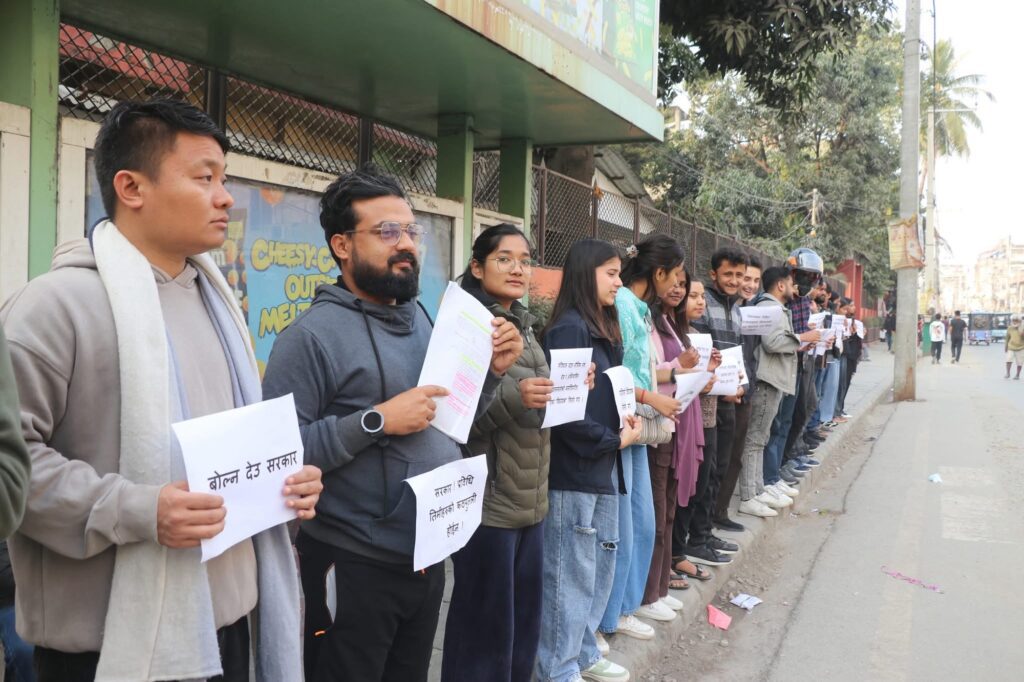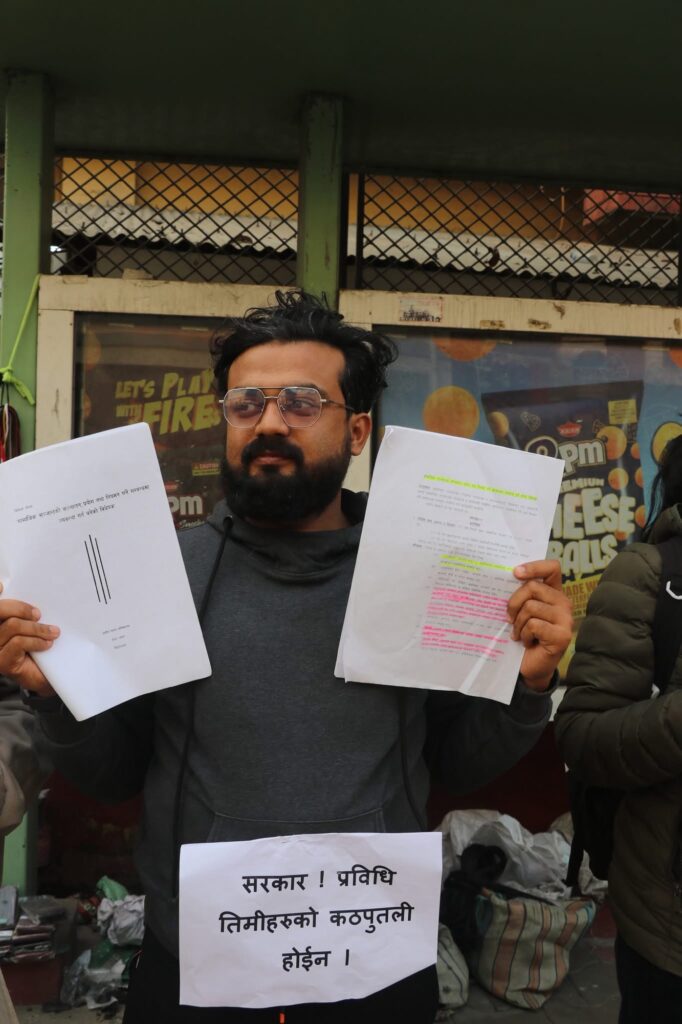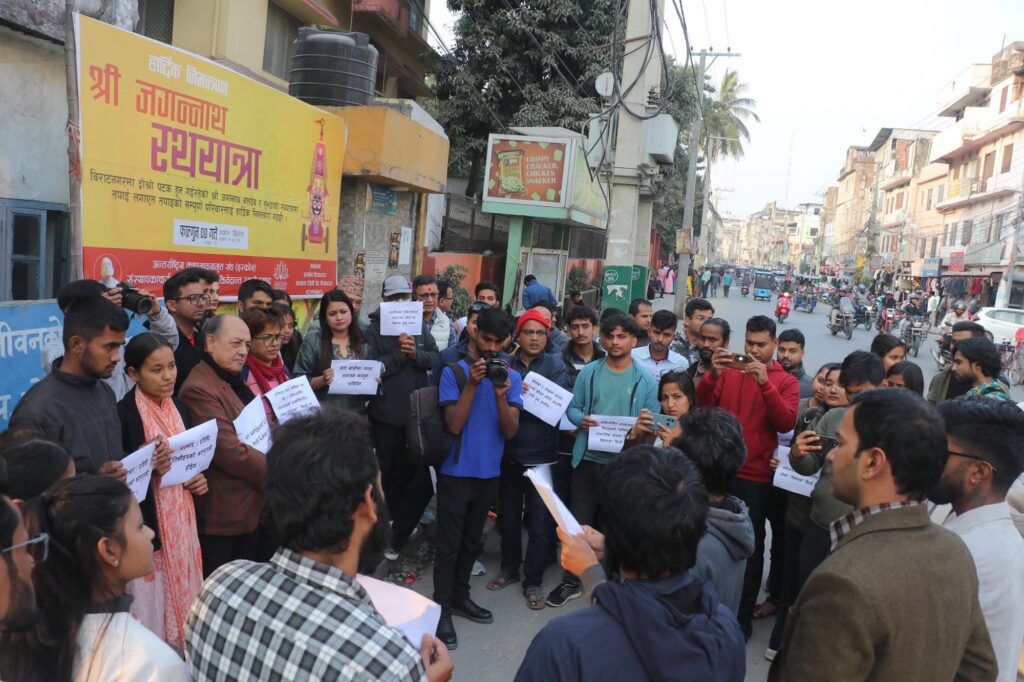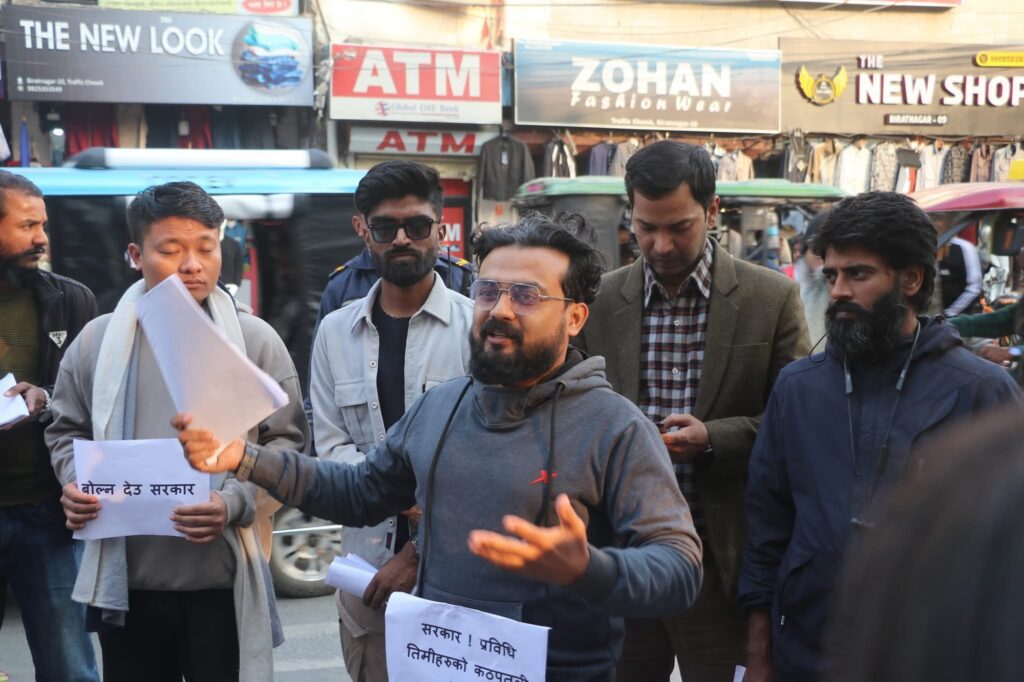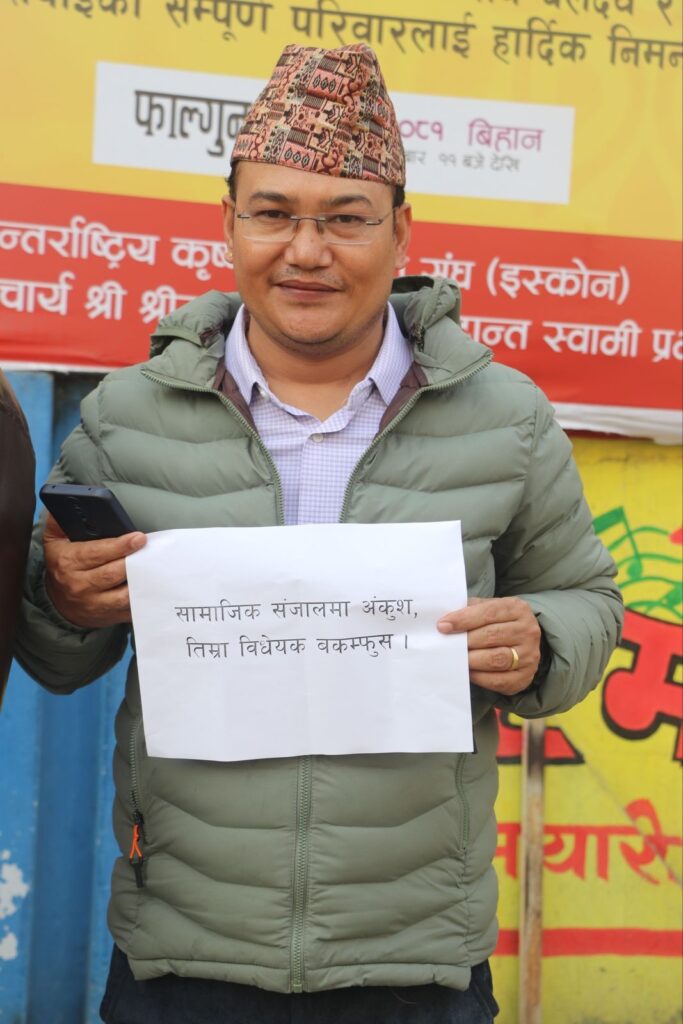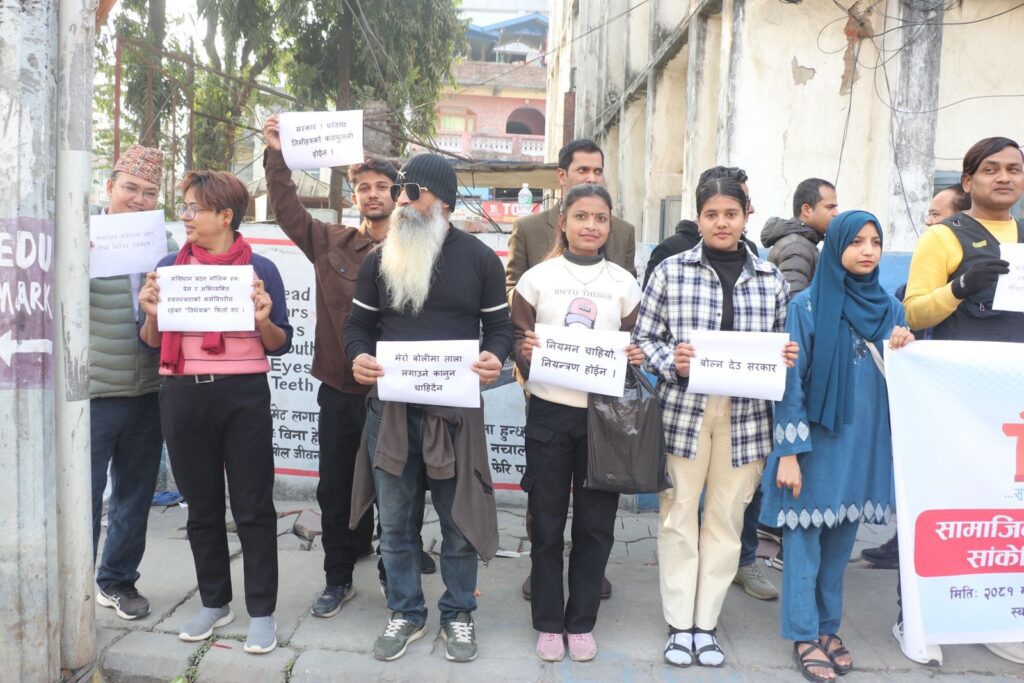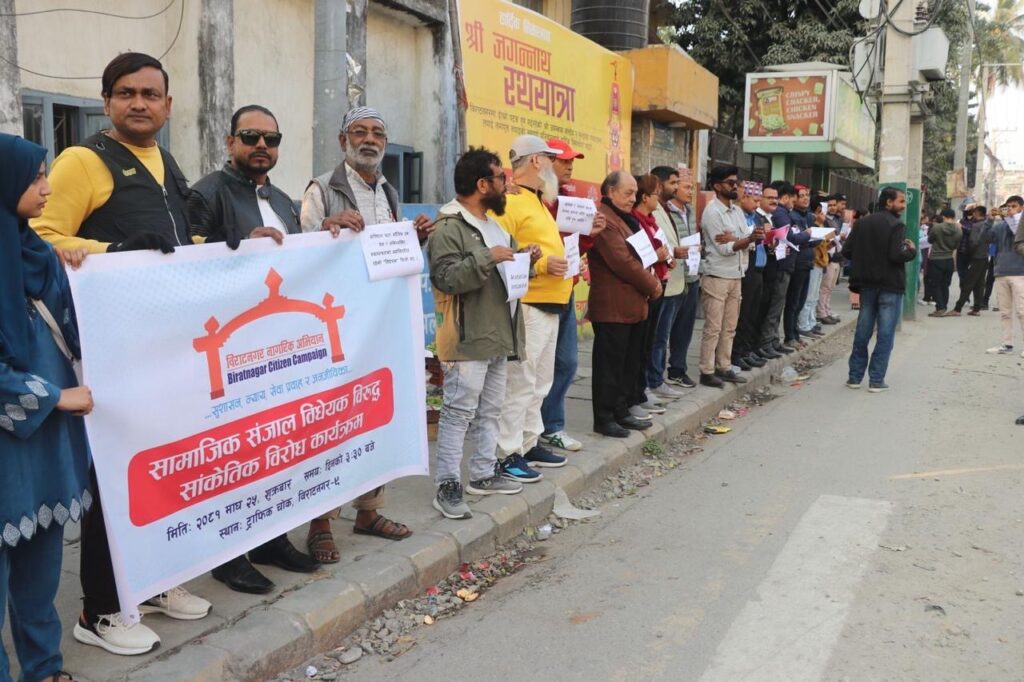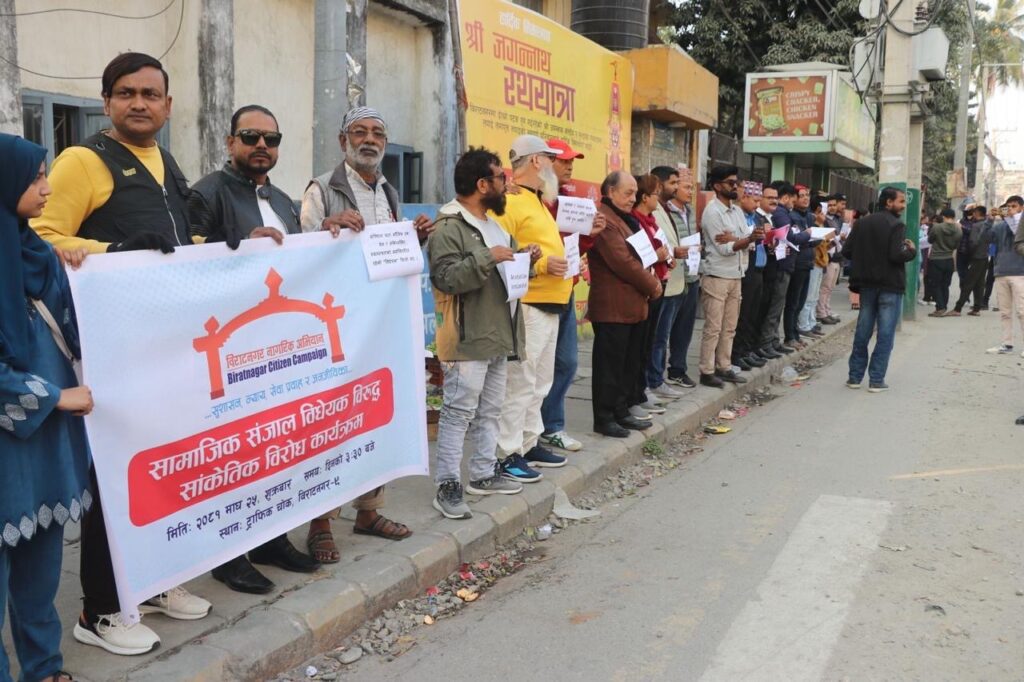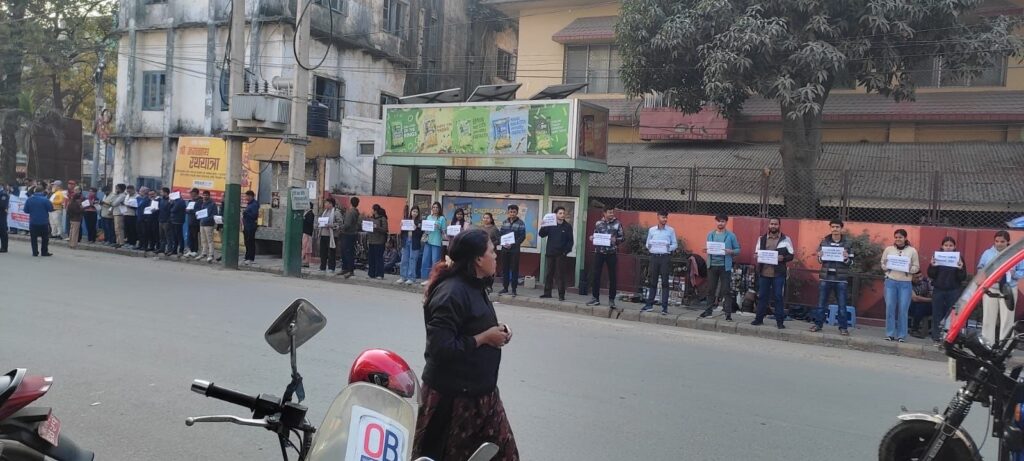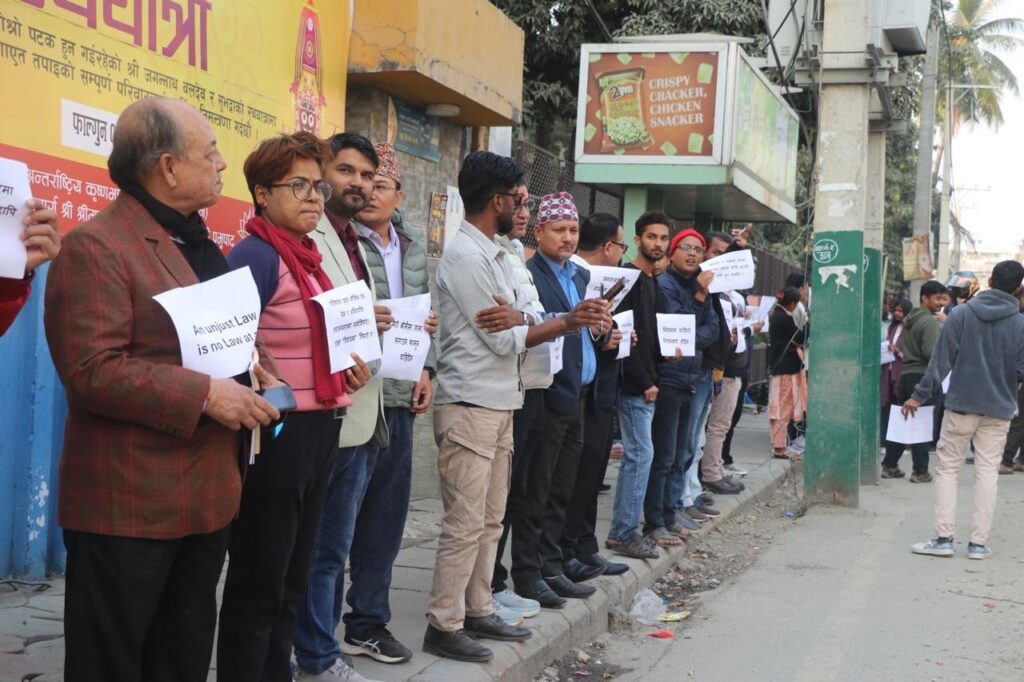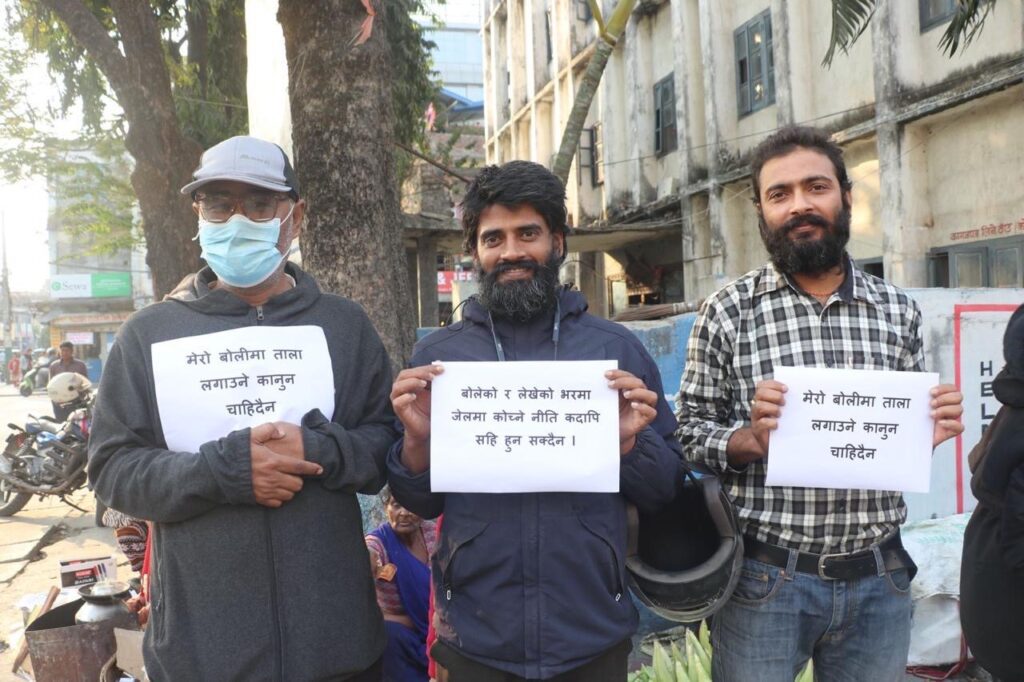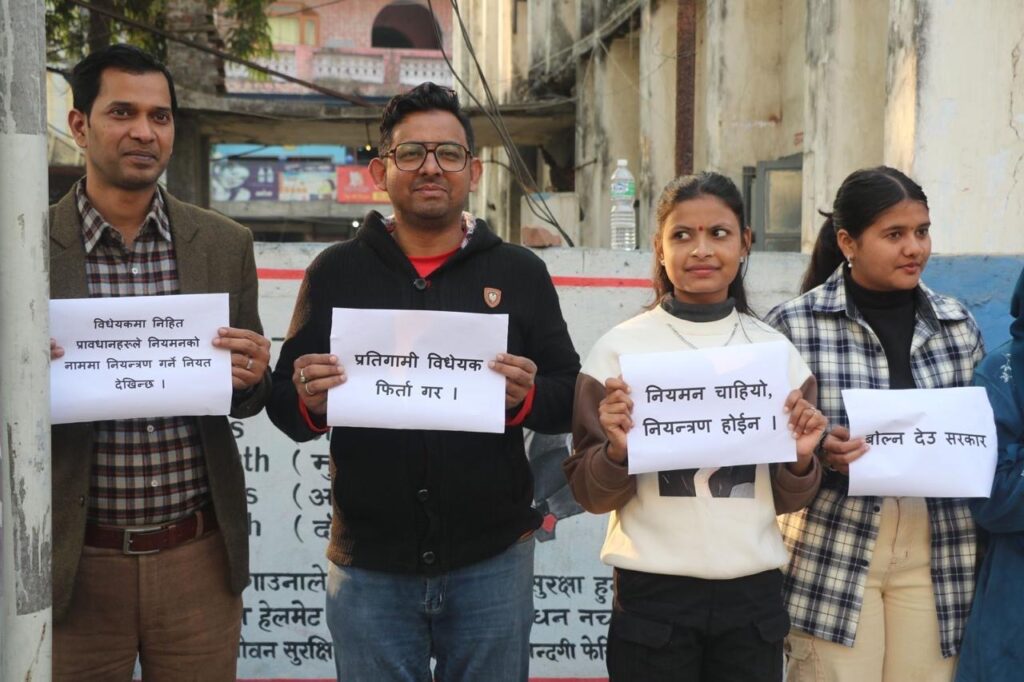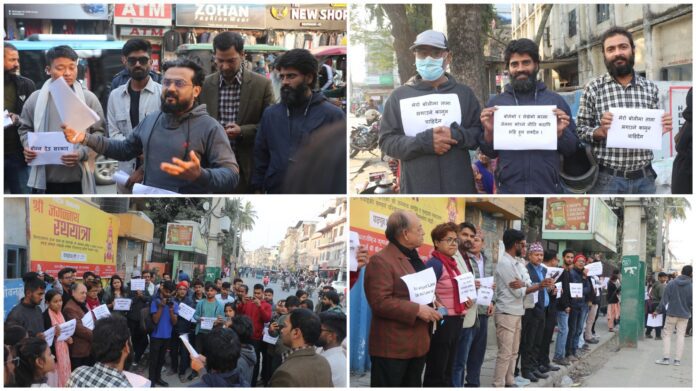The recent protests in Biratnagar against the proposed Social Media Bill have ignited significant discussions among tech enthusiasts and advocates of digital rights. The bill, officially titled “Bill to Regulate the Operation, Use, and Management of Social Media,” was registered in the National Assembly on January 29, 2025, by the Minister of Communications and Information Technology, Prithvi Subba Gurung. Critics argue that the bill contains provisions that could severely impact freedom of speech, human rights, and democratic values.
On Friday, over 100 individuals, including social media influencers, content creators, bloggers, and journalists, participated in Biratnagar’s inaugural street protest against the proposed Social Media Bill. Critics argue that the bill threatens freedom of speech and digital rights. The demonstration was organized by the Biratnagar Nagarik Abhiyan at Traffic Chowk. Participants included youth, representatives from various social organizations, and members of civil society.
The protest aimed to raise public awareness about the bill’s controversial provisions, which opponents believe could impose severe restrictions on citizens’ rights to information and expression. They contend that the bill’s vague language could lead to the criminalization of minor offenses, thereby undermining democratic values. The government maintains that the bill is intended solely to regulate social media platforms.
Key Provisions of the Proposed Bill
The bill introduces stringent regulations for both social media platforms and users:
- Licensing Requirements: Social media platforms operating in Nepal are required to obtain a license within three months of the bill’s enactment. Failure to do so could result in fines ranging from NPR 2.5 million to NPR 10 million.
- User Accountability: Users found disseminating false or misleading information that could harm national interests face penalties of up to five years in prison or fines up to NPR 1.5 million.
- Content Regulation: The bill mandates platforms to remove content deemed illegal by the authorities. Non-compliance can lead to substantial fines.
Public Response and Concerns
The bill has faced opposition from various quarters:
- Civil Society: Organizations like the Nepal Press Union have expressed concerns that the bill seeks to control citizens’ constitutional rights under the guise of regulating social media.
- Political Parties: Parties such as the Rastriya Swatantra Party (RSP) have criticized the bill for attempting to curtail freedom of speech and suppress critical voices.
- Media Organizations: The Federation of Nepali Journalists has raised objections, highlighting that the bill includes provisions that could undermine press freedom.
Implications for Tech Enthusiasts
For the tech community, the bill presents several challenges:
- Innovation Stifling: Stringent regulations may deter new platforms from entering the market, limiting innovation and competition.
- Privacy Concerns: Mandatory user identification could compromise user privacy and data security.
- Operational Hurdles: Compliance requirements may increase operational costs for platforms, potentially leading to reduced services or increased costs for users.
Conclusion
While the government’s intent to regulate social media is understandable, it’s crucial to balance regulation with the protection of fundamental rights. Engaging with stakeholders, including tech experts, civil society, and the general public, is essential to ensure that the final legislation fosters a safe online environment without compromising democratic freedoms.
